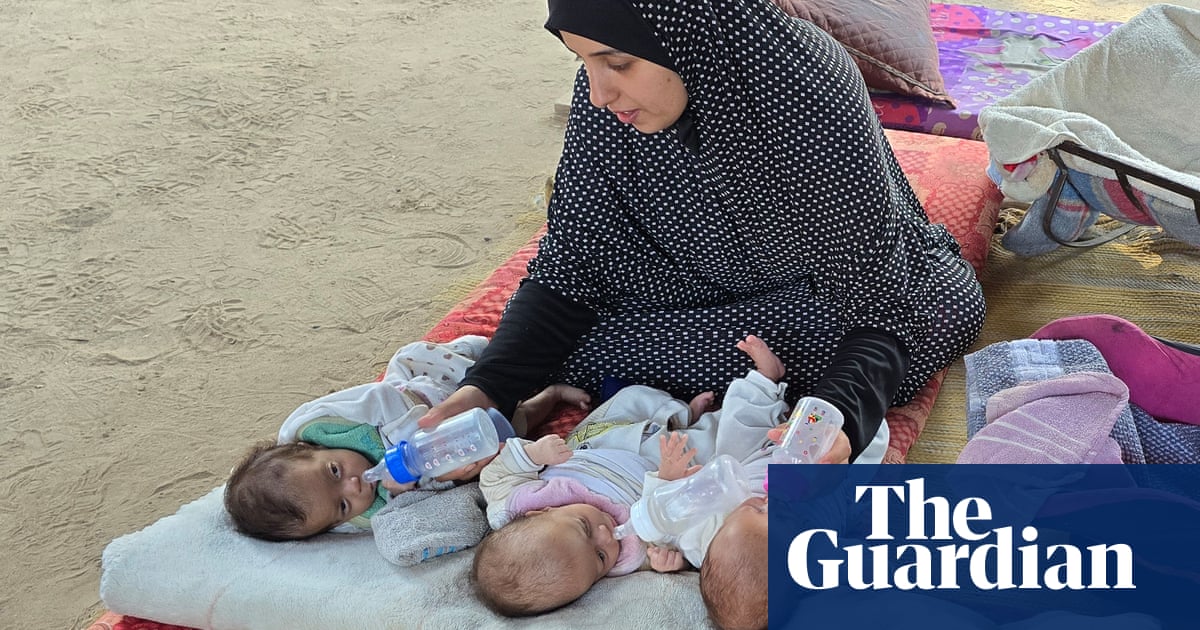The constant trauma (of the war) took its toll on Yasmeen Khuwaiter, who found out about her pregnancy two weeks before the war, and gave birth to triplets in April, two months before her due date.
When she was in need of treatment in November, she arrived at a hospital to find it closing because of a shortage of medical supplies and electricity. Khuwaiter and her family fled from Gaza City to central Gaza, with her husband having to push her in a wheelchair. Weeks later she had to flee again, to Rafah in the south of the strip.
Doctors referred her for treatment in Egypt, but after a month of waiting to be allowed out of Gaza, the area Khuwaiter was staying in was bombed, forcing the family to flee again to central Gaza, where she gave birth in hospital.
“We returned to live in a tent. A tent that lacked the necessities of human life,” she says. “You can imagine – three premature babies in need of extreme care, living in a tent.”
Israel: Look, three future Hamas fighters, better bomb that tent!

This is the best summary I could come up with:
After a night spent shaking in fear as the roof rattled from explosions, and a long walk along a crowded road, Diana Mahmoud arrived at the hospital where she gave birth to her son, Yaman.
Miscarriages are three times more likely than before the war, according to a February report by the London School of Hygiene & Tropical Medicine and the Johns Hopkins Center for Humanitarian Health.
The destruction of Gaza’s healthcare system meant that Mahmoud received no antenatal care during her pregnancy and was discharged by the overburdened hospital immediately after Yaman’s birth.
Save the Children says 50,000 babies have been born in Gaza over the past nine months, and repeated displacements mean some women are inducing labour themselves because they fear giving birth while on the move.
The constant trauma took its toll on Yasmeen Khuwaiter, who found out about her pregnancy two weeks before the war, and gave birth to triplets in April, two months before her due date.
The birth was difficult – Khuwaiter suffered bleeding during the caesarean section, for which she was given some of the very limited stocks of anaesthetic, and one of her daughters spent several days in intensive care.
The original article contains 799 words, the summary contains 198 words. Saved 75%. I’m a bot and I’m open source!





